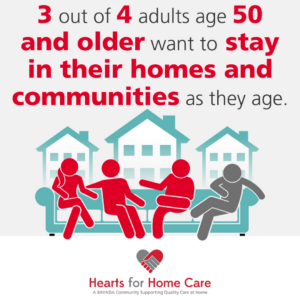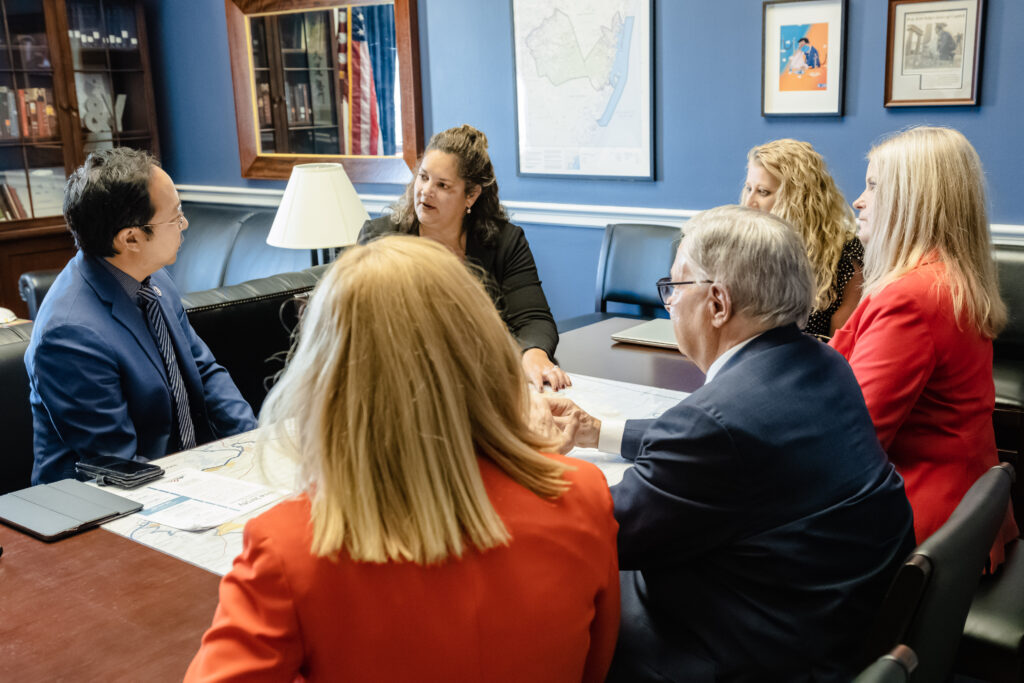
Many state legislatures have wrapped up budget negotiations and are now in recess until September. But the federal government has ensured that home health care advocates have plenty to do during the summer months: The Centers for Medicare and Medicaid Services (CMS) has recently proposed two rules that have the potential to hinder access to home health care services for millions of US residents that rely on professional caregivers to live safely at home:
- Medicaid Preserving Access to Care Rule: First, in April, CMS proposed a rule that would require all states to pass off 80% of reimbursement rates to caregivers and leaving only 20% to go towards all other costs of providing care – which would create severe access to care issues, particularly for rural and underserved communities.
- Medicare Home Health Payment Reduction: Second, earlier this month, CMS issued its 2024 proposed rule, which would reduce payments for Medicare Home Health services by 2.2%, or $375 million in 2024 – thereby devastating the industry.
Background on the Preserving Access to Care Rule
Although CMS’s rationale for this proposal comes from a place of logic and concern for the current caregiver workforce shortage, there are major unintended consequences that could follow if this one-size-fits-all rule went into effect. Each state has a different Medicaid program, and home care funding varies widely. Some states, like Massachusetts and Delaware, have prioritized Medicaid program investments, while others, like Georgia and West Virginia, have seen stagnant and low funding.
Inadequate funding makes it near impossible for home care providers to stay in business already, and any sort of pass-through mandate would almost guarantee that many agencies would close their home care operations in those states. An across-the-board rule for all 50 states and programs would create serious roadblocks for providers – ultimately decimating access to care issues for the very vulnerable individuals CMS is aiming to protect.
Background on the Home Health Payment Reductions

Did you know that the average home health visit costs on average only $80 per day, per individual? Compare that to a hospital stay which costs on average $2,600 and skilled nursing facilities, where daily care costs about $1,250. Home health is an incredibly cost-saving option of care — In fact, CMS estimates that home health saves taxpayers almost $400 million each year. And although CMS proudly states this fact in their proposal, they are still suggesting a 2.2% payment reduction for these services in 2024 —which equates to $375 million in reductions to the industry annually.
It is undeniable that the costs of our daily lives — gas, groceries, other goods and services — have shot up significantly in the past couple of years. This means that business costs and employment cost pressures have risen as well. Any cut to the home health industry means that providers have fewer resources to hire qualified staff and deliver rehabilitation services to the individuals who need them.
Home Care is the Future of Health Care
It’s an undeniable fact that home care services saved the healthcare system during the pandemic. At a time when hospitals were at capacity and nursing homes were struggling to keep patients safe and isolated, home care stepped up to the plate and kept hundreds of thousands of Americans safe and cared for at home. Even President Biden recognized the value of home-based services when he stated in his 2023 State of the Union address:

“Let’s get seniors who want to stay in their homes the care they need to do so. And give a little more breathing room to millions of family caregivers looking after their loved ones… so we get seniors and people with disabilities the home care services they need and support the workers who are doing God’s work.”
Hearts for Home Care and industry advocates are grateful to have a president who so outwardly recognizes the cost-effective, patient preferred value of home care, and for his call to invest in the industry as the future of the American healthcare system… but then we also must ask ourselves:
Why has the federal government proven the opposite with these proposed rules, which could in turn, harm the industry and those who rely on it?
What is the home care industry doing about this?
So far, more than 25 state home care associations have submitted formal comments to CMS about these proposed rules — as well as many national member-based home health care organizations and individual providers. The industry is planning continued advocacy throughout the summer months and into the fall, when a final rule may be decided upon. Advocates have been meeting with state and federal lawmakers and regulators about the importance of curbing these proposals for the best possible outcomes for home care recipients and their families.

This is important to me. How can I help?
We must all get involved in advocacy. Sharing our voices with our elected leaders in Congress is vital to CMS hearing our concerns regarding the impact these rules would have on ourselves, our loved ones, and our caregivers and clients. Make sure you are signed up as a Hearts for Home Care advocate. Membership is free and we aim to provide you with the tools and resources necessary to reach legislators and other decision-makers with our consistent message: “Home care is important to me, and it should be important to you too.”
As we continue to monitor the progress of these proposed rules, there will be many opportunities to advocate. H4HC members will receive action alerts, which allow you to send a message to your Congressional representatives with the click of a button. Individuals and family members can be involved with legislative meetings and with social and earned media opportunities to educate legislators and the public about the importance of home care.
We cannot do it alone!
Home health care companies and even professional advocates and organizations cannot convince the federal government to listen to us alone – We need hundreds of voices with the same message in order to affect change. Please join us to make your voice heard today!








